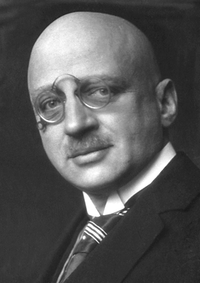
Photo from wikipedia
ABSTRACT This article investigates the relationship between history and the boundary-making process studied by cultural sociologists. Drawing on recent works on boundary-making in immigration societies, it argues that a more… Click to show full abstract
ABSTRACT This article investigates the relationship between history and the boundary-making process studied by cultural sociologists. Drawing on recent works on boundary-making in immigration societies, it argues that a more configurational conception of history is necessary in order to complement the view of history as institutional legacy, which is commonly held in the scholarship on immigrant integration and citizenship. Based on the study of the debates that started in the mid-1980s about immigrant integration in France and the reconstruction of a French political tradition of republican citizenship, and on a dispute that took place between 2004 and 2005 about the legacy of French colonialism, the article shows the role played by the configuration of the past (or historical repertoires) in the construction of the category of ‘Muslims’ as the least valuable member of the French society.
Journal Title: Journal of Ethnic and Migration Studies
Year Published: 2020
Link to full text (if available)
Share on Social Media: Sign Up to like & get
recommendations!